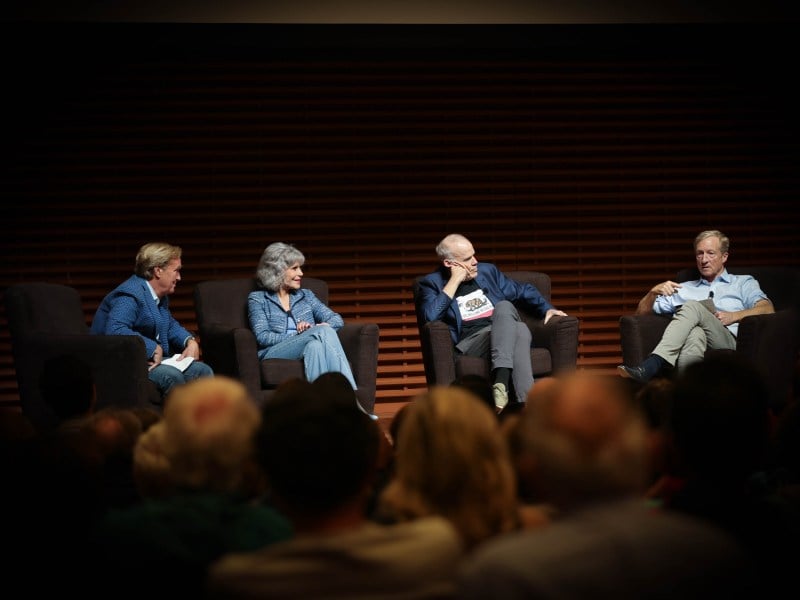What led an actor, a writer and an investor to dedicate their lives to combatting climate change? Jane Fonda, Tom Steyer and Bill McKibben shared personal insights from their diverging backgrounds in a Monday talk that emphasized the importance of climate activism and the economic benefits of clean energy.
The speakers gathered for the climate-focused installment of adjunct professor James Steyer’s one-unit speaker series, EDUC 64: “Shaping America’s Future: Exploring the Key Issues on Our Path to the 2024 Elections.”
The speakers made frequent reference to Stanford’s role in climate change. McKibben criticized the University’s refusal to divest from fossil fuels: “It is a disgrace that Stanford continues to try to profit from the end of the world.”
A journalist and activist, McKibben was born in Palo Alto and now teaches at Middlebury College. He wrote “The End of Nature,” a landmark book on climate change, in 1989. He also founded 350.org, the first global grassroots climate campaign, and Third Act, an organization that encourages people over 60 to participate in climate activism.
McKibben also criticized the Stanford Natural Gas Initiative for “greenwashing” the world’s “most dangerous” industry.
McKibben also called on tenured professors to put their position “to good use,” calling them “the most bulletproof people in the entire world.”
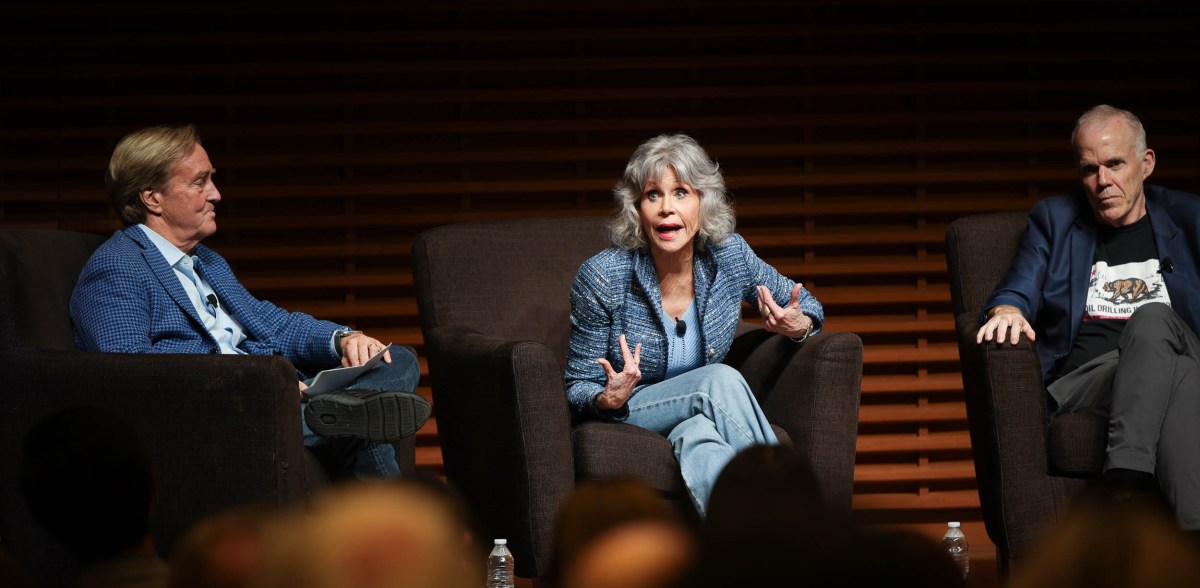
Fonda, who has a long history of political engagement and wrote the 2020 book “What Can I Do? The Path From Climate Despair to Action,” was optimistic about the power of student activism at Stanford. She encouraged students to “rise up” for divestment and “lead the way” in opposing an upcoming California referendum. The 2024 referendum would reverse SB 1137, a law that prevents oil and gas drilling near homes, hospitals and schools.
The speakers disagreed on the Biden administration’s response to climate change. While Fonda said that Biden’s climate response has been lacking compared to his campaign promises, Tom Steyer felt “much more positive,” citing the 2022 Inflation Reduction Act (IRA) as an “amazing” step for US climate leadership.
McKibben said Biden’s approval of an oil drilling project in Willow, Alaska was “brutal and stupid.”
The speakers also highlighted the importance of voting, citing Stanford’s low voter participation in the 2016 election. Fonda emphasized the need to vote out climate deniers and put “climate champions” on the ballot, a goal that she supports through the Jane Fonda Climate PAC.
Tom Steyer, James Steyer’s brother, focused more on the economics of combating climate change. Tom Steyer worked as an investor before moving to philanthropy and climate advocacy, in addition to a brief presidential campaign in 2020.
While climate statistics are “shockingly horrible,” Tom Steyer said, “We actually are in a position to win this.” He pointed to scientific advances and the current adoption of clean energy and electric vehicles.
Tom Steyer said that clean energy must “win in the marketplace” by providing better, cheaper products. He argued that fossil fuels look cheap due to subsidies, but clean energy is more affordable in the long run.
Both Tom Steyer and McKibben championed the potential of solar panels, which McKibben called a “water into wine miracle” for affordable clean energy. They see solar panels as the obvious front-runner to supply the world’s energy, impeded only by fossil fuel companies that are lobbying government officials.
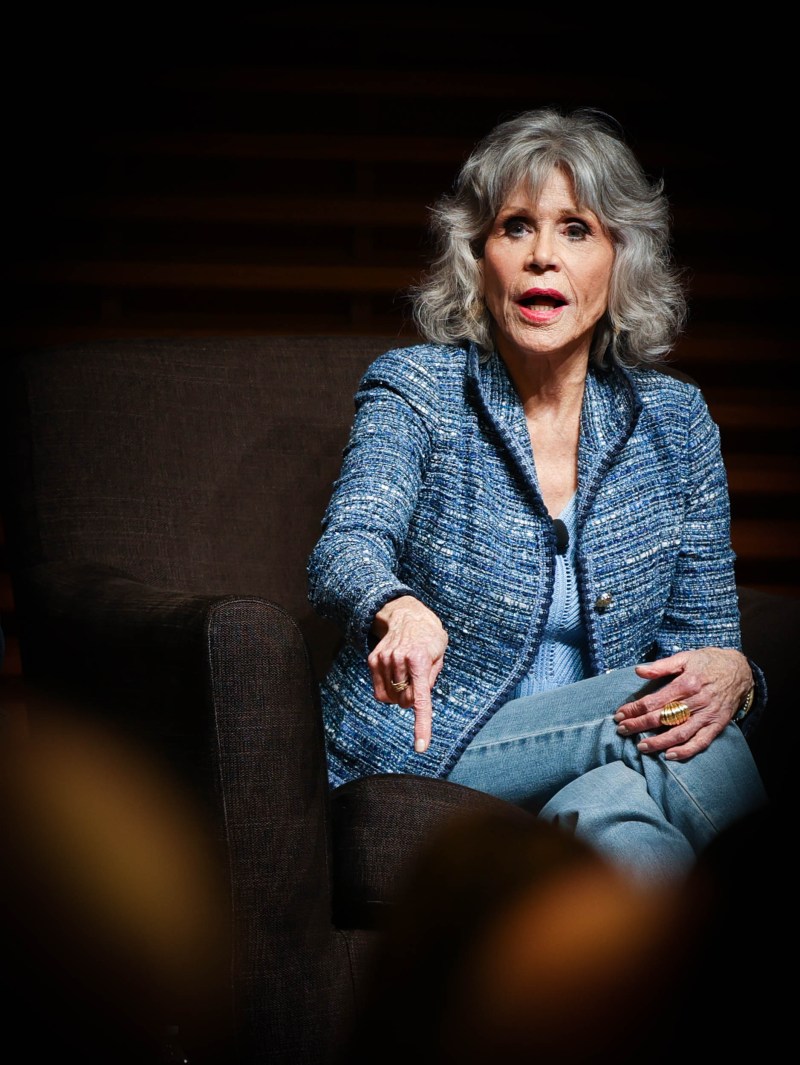
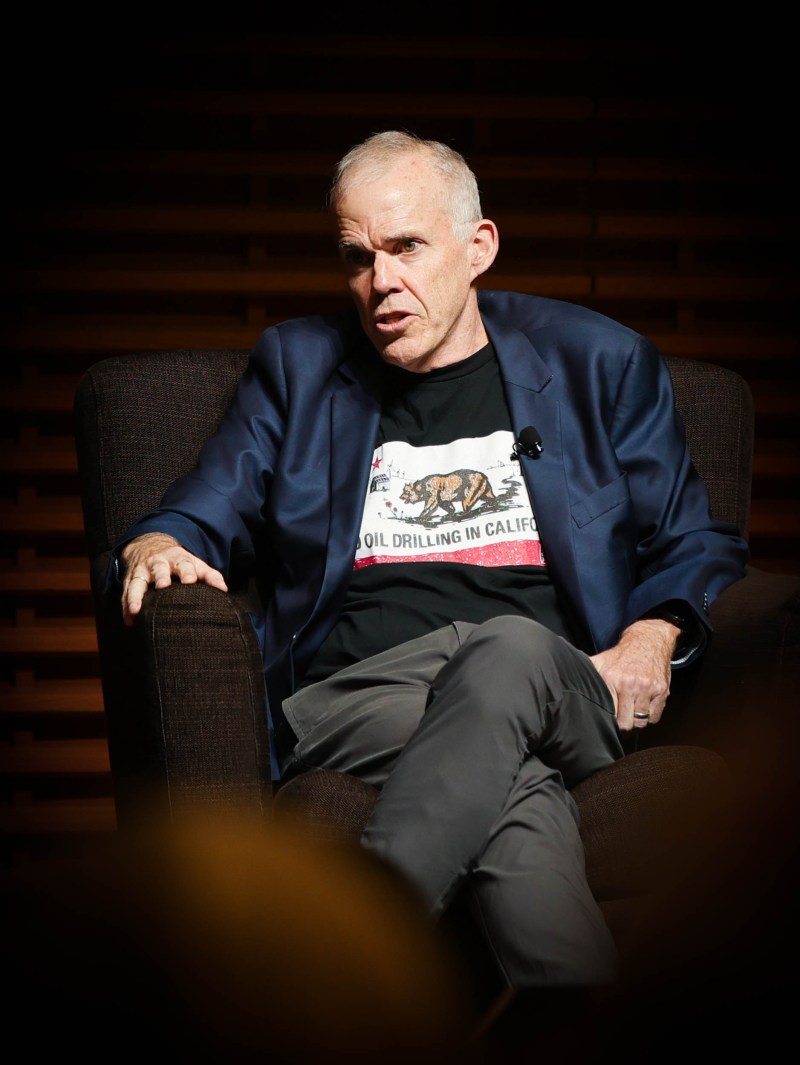
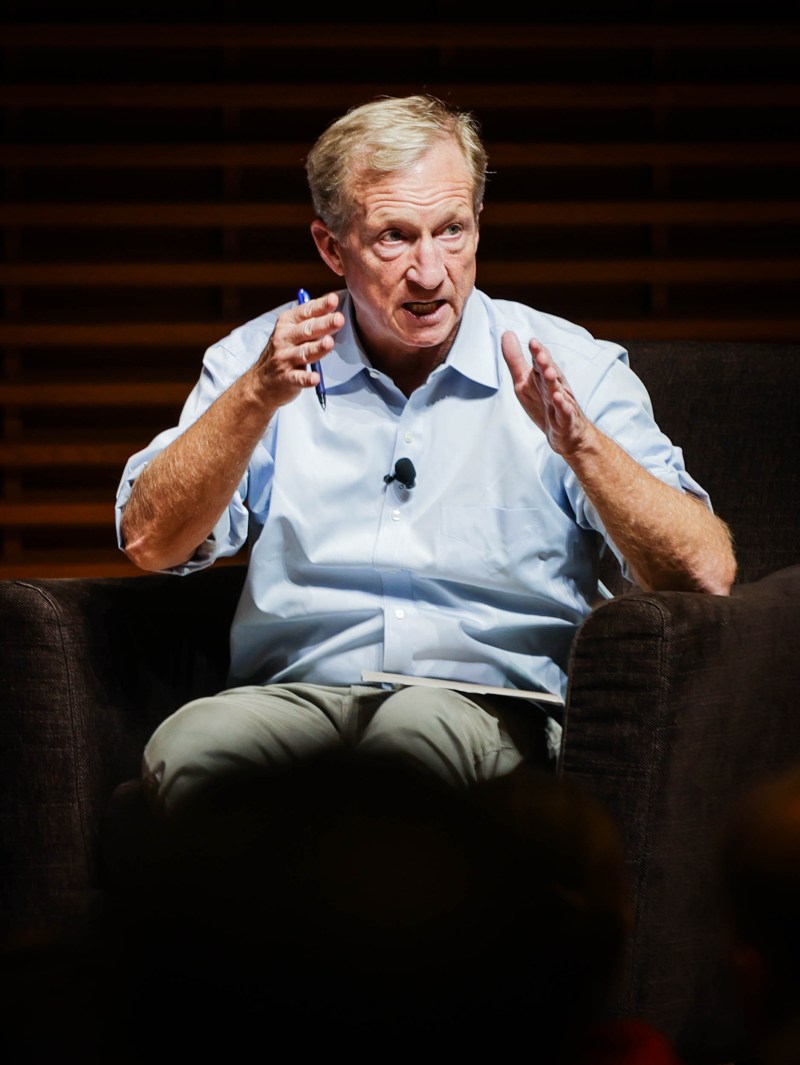
“Don’t sleep with any guys who don’t hate fossil fuels,” Fonda said.
Evan Engel J.D. ’24, one of the course’s TA’s, commended Fonda’s “incredible energy.” While many of the course’s talks are about high-level, conceptual ideas, Monday’s talk felt “tangible” and “immediately impactful,” Engel said.
Several audience members found the talk relevant to their work.
“One of the things that was an ‘aha’ moment for me was when they were talking about how to talk to people about climate,” said Kim Sponem, CEO of Summit Credit Union and member of Global Alliance for Banking on Values (GABV), referring to Tom Steyer’s comments on communicating with climate deniers. Tom Steyer recommended emphasizing the monetary costs of digging more fossil fuels each month as opposed to a long-lasting solar panel.
“I think what we heard today is clearly an urgency” for climate action, said Martin Rohner, GABV’s executive director. “If we’re not able to demonstrate that there’s a business model in it, or that it’s affordable to the average consumer, we’re not going to be able to achieve change and at the speed that we need it.”
